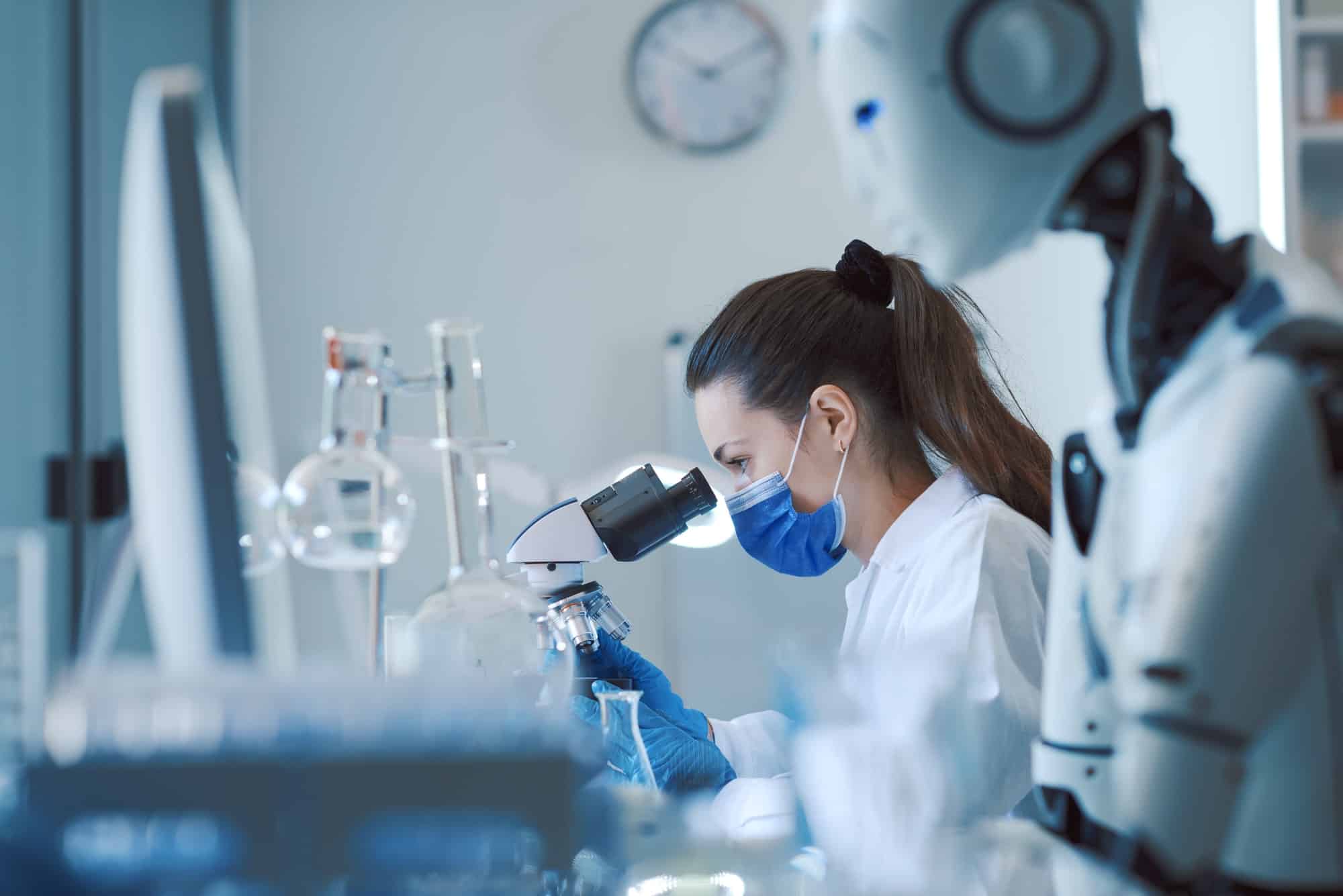How Are AI-Enabled Microscopes Contributing to Faster Disease Diagnosis?

As we delve deeper into the 21st century, the remarkable synergy between healthcare and technology continues to unfold in unprecedented ways. One of the most promising developments is the marriage of artificial intelligence, and microscopy, which has opened new frontiers in disease diagnosis. From creating algorithms that efficiently analyze patient data to actual disease diagnosis, AI-enabled microscopes are increasingly becoming vital tools in the world of medical science.
In this article, we will explore how digital data, learning algorithms, and artificial intelligence come together in advanced microscopy to facilitate faster and more accurate disease diagnosis. We will also touch on the roles of Google Scholar and other advanced research platforms in contributing to these fascinating developments.
A découvrir également : Can Smart Roads with Embedded Sensors Improve Traffic Safety and Efficiency?
AI-Based Analysis of Medical Images for Disease Diagnosis
Medical images, from scans to cells under a microscope, contain critical information that guides the diagnosis of various diseases. Yet, the interpretation of these images can be complex and time-consuming, often requiring the expertise of experienced medical professionals.
Enter artificial intelligence. AI-based image analysis is revolutionizing this aspect of medical diagnosis. Advanced learning algorithms can interpret these images, identify irregularities, and even predict potential diseases. This ability to analyze vast amounts of data and detect subtle patterns surpasses human capabilities, increasing both the speed and accuracy of disease diagnosis.
A lire également : How Are Laser-Based Technologies Improving Teeth Whitening in Dental Care?
AI-enabled microscopes scan cell and tissue samples and the AI algorithms interpret the acquired images. This process involves complex pattern recognition, allowing the software to accurately differentiate between healthy and diseased cells. These AI applications not only speed up the diagnostic process but also reduce the risk of human error, which is a significant advantage in the high-stakes world of healthcare.
AI in Clinical Diagnosis: Accelerating Disease Detection
Artificial intelligence isn’t just transforming how we interpret medical images – it’s revolutionizing the entire diagnostic process. AI-based clinical diagnosis leverages data from various sources, including patient medical histories, genetic profiles, and real-time biometrics, to rapidly identify signs of disease.
One of the most significant contributions of AI to clinical diagnosis is predictive analytics. By using vast amounts of data and machine learning algorithms, AI can forecast the likelihood of disease occurrence in patients. This allows for early interventions and preventive care, improving patient outcomes and reducing healthcare costs.
Moreover, AI is playing a pivotal role in the diagnosis of complex diseases that demand an enormous amount of data analysis. For instance, in the field of oncology, AI-enabled microscopes are contributing to faster and more accurate cancer diagnosis. They are capable of detecting cancerous cells in tissue samples, thereby facilitating early detection and treatment.
AI, Google Scholar, and Advanced Disease Diagnosis
The role of platforms like Google Scholar in advancing AI-enabled disease diagnosis cannot be understated. Researchers, clinicians, and data scientists across the globe utilize these platforms to share their findings, enhance their knowledge, and develop novel AI algorithms.
Google Scholar and similar platforms provide access to a vast array of scholarly articles, research papers, and clinical studies. Such resources offer invaluable insights into the latest developments in AI-based disease diagnosis, enabling professionals to stay at the forefront of their fields.
Furthermore, these platforms facilitate collaboration between different stakeholders in healthcare and technology. They enable the sharing of valuable information, from new AI algorithms for image analysis to novel uses of AI-enabled microscopes. This cooperative environment accelerates the development of AI tools in healthcare, leading to faster and more accurate disease diagnosis.
AI and Patient-Centric Healthcare
Artificial intelligence has the potential to significantly improve patient care by providing personalized, data-driven healthcare. AI systems can analyze a patient’s medical profile, genetic information, lifestyle habits, and more to provide personalized diagnosis and treatment options.
For instance, AI algorithms can analyze the genetic makeup of a patient’s disease, such as cancer, and match it with the most effective treatment plan. AI-enabled microscopes can also identify the specific characteristics of a disease at a cellular level, enabling more targeted and effective interventions.
AI also empowers patients by providing them with access to their health data, thereby enabling them to take a more active role in their healthcare. For example, AI-based applications can interpret medical images and provide patients with understandable feedback, thus facilitating patient-doctor communication.
The Future of AI in Disease Diagnosis: The Role of AI in Health Data Analysis
The vast amounts of health data generated today, from clinical trials to individual patient health records, present a significant opportunity for artificial intelligence. AI’s ability to analyze and interpret this data can lead to breakthroughs in disease diagnosis and treatment.
AI-enabled microscopes play a crucial role in this data analysis. They offer a more in-depth look at diseases at a cellular level, providing data that can improve existing diagnostic techniques and potentially uncover new ones.
Moreover, machine learning algorithms can identify patterns in health data that might be overlooked by human analysis. These patterns could lead to the discovery of early disease markers, enabling preventive care and early treatment.
AI also holds promise in the analysis of real-time health data. By continuously monitoring and analyzing health data, AI can detect changes in a patient’s health status and alert healthcare providers, enabling timely interventions.
In conclusion, AI-enabled microscopes and AI-based health data analysis are not distant prospects but realities that are transforming healthcare today. Through faster, more accurate disease diagnosis, AI is helping to improve patient outcomes and bring us closer to the goal of personalized, data-driven healthcare.
The Interplay Between AI and Machine Learning in Disease Diagnosis
At the heart of artificial intelligence’s remarkable power in disease diagnosis lies machine learning. This subset of AI enables systems to learn from data, identify patterns, and make decisions with minimal human intervention. In the field of healthcare, machine learning algorithms are being deployed in various ways, including in AI-enabled microscopes, to expedite disease detection and improve patient care.
Machine learning, coupled with the power of neural networks and deep learning, helps AI systems accurately interpret medical images. Neural networks, inspired by the human brain, allow an AI system to learn from observational data. This means that as the AI is exposed to more medical images, it continually improves its ability to identify diseases.
Deep learning, a type of machine learning, makes use of algorithms that permit the software to train itself to recognize patterns by exposing multi-layered neural networks to vast amounts of data. In AI-enabled microscopes, these algorithms can sift through and analyze thousands of cell images to detect any abnormality or sign of disease, such as breast cancer cells in a tissue sample.
The integration of machine learning in disease diagnosis also significantly enhances decision-making abilities in the clinical laboratory. By analyzing vast datasets of patient medical histories, genetic profiles, lifestyle habits, and real-time biometrics, healthcare providers can make informed, timely decisions about disease diagnosis and treatment.
Google Scholar’s Role in Advancing AI in Disease Diagnosis
Research and collaboration are key driving forces in the continual advancement of AI in disease detection and diagnosis. In this regard, platforms like Google Scholar play an invaluable role. By providing access to a plethora of scholarly articles, research papers, and clinical studies, Google Scholar enhances knowledge sharing and facilitates collaboration among researchers, clinicians, and data scientists around the world.
In addition, Google Scholar is a treasure trove of insights into the latest developments in AI-based disease diagnosis. It lets professionals stay updated about novel AI algorithms for image analysis, innovative uses of AI-enabled microscopes, and breakthroughs in machine learning and deep learning.
Furthermore, by being a hub for collaboration, Google Scholar encourages the sharing of valuable information and ideas. This cultivates a cooperative environment that fosters the development of AI tools in healthcare, ultimately leading to faster disease diagnosis and improved patient outcomes.
Conclusion: The Promising Future of AI in Disease Diagnosis
Artificial Intelligence is fundamentally transforming disease diagnosis, with AI-enabled microscopes and AI-driven health data analysis standing at the forefront of this evolution. The power of AI to analyze vast amounts of data, identify subtle patterns, and make accurate predictions, offers immense potential in accelerating disease detection, enhancing patient care, and personalizing healthcare.
Learning algorithms, neural networks, and deep learning are key AI components that promise to make disease diagnosis faster, more accurate, and more efficient. Platforms like Google Scholar are instrumental in fostering research, knowledge sharing, and collaboration, further driving the advancements in AI-based disease diagnosis.
As we look to the future, it is evident that AI holds the key to unlocking new possibilities in healthcare. With continued research and advancements, AI can help us realize the goal of personalized, data-driven healthcare and significantly improve patient outcomes. The journey is just beginning, and the potential of AI in revolutionizing disease diagnosis is immense.
